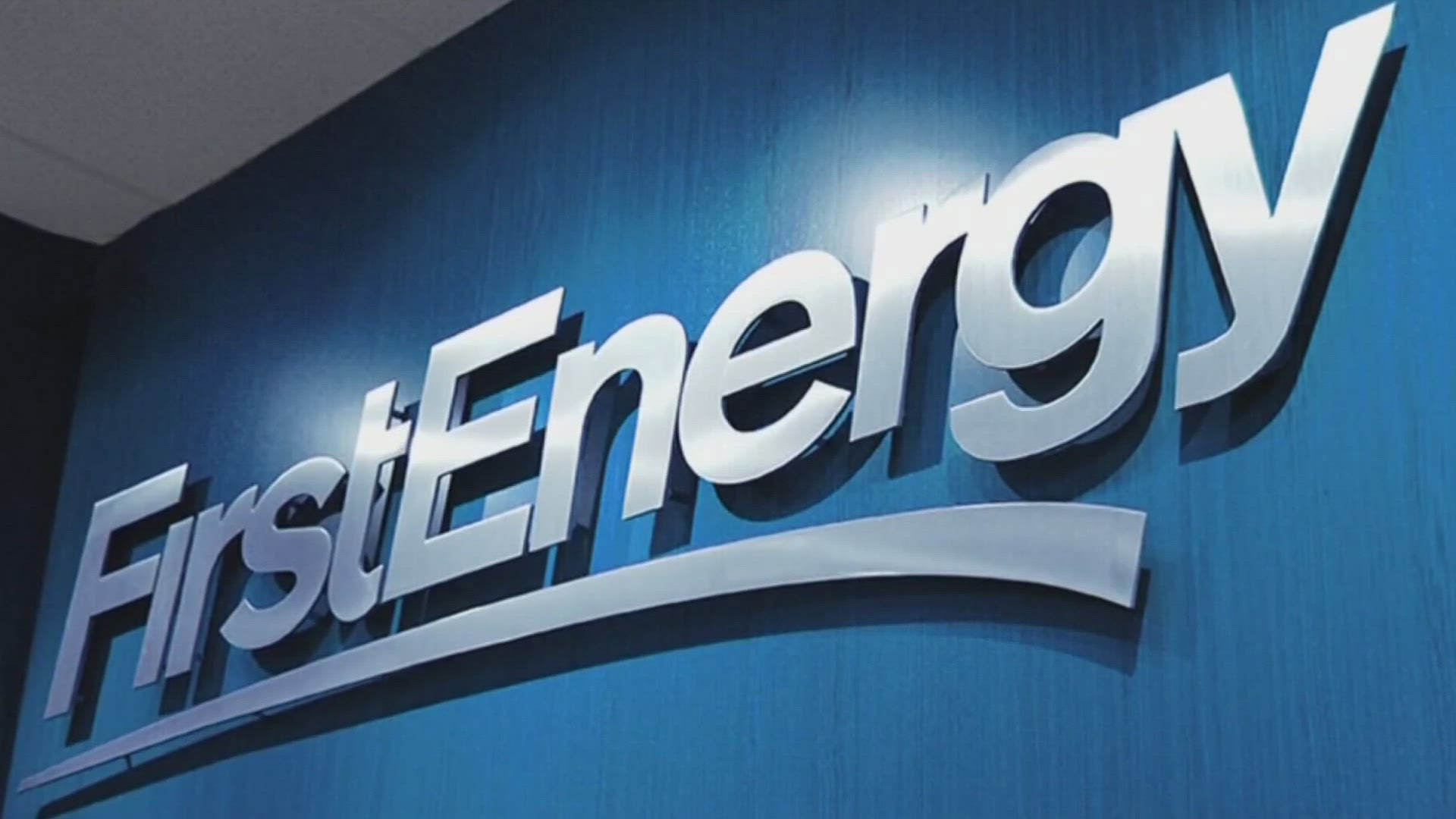COLUMBUS, Ohio — Ohio Attorney General Dave Yost announced new indictments against two former FirstEnergy executives and former PUCO chairman Sam Randazzo in the House Bill 6 scandal.
Former CEO Chuck Jones and former Senior Vice President of External Affairs Michael Dowling were charged in the 27-count indictment for the first time. This is the second indictment Randazzo was named in.
Jones was indicted on 10 felony counts, including:
- One count of engaging in a pattern of corrupt activity (F1)
- Two counts of aggravated theft of $1.5 million or more (F1)
- One count of bribery (F3)
- Two counts of telecommunications fraud (F1)
- Four counts of money laundering (F3)
Dowling was indicted on 12 felony counts, including:
- One count of engaging in a pattern of corrupt activity (F1)
- Two counts aggravated theft of $1.5 million or more (F1)
- One count of bribery (F3)
- Two counts of telecommunications fraud (F1)
- Four counts of money laundering (F3)
- Two counts of tampering with records (F3)
Randazzo was first charged in December 2023 in an 11-count indictment centered on allegations that he accepted bribes from FirstEnergy Corp. in exchange for regulatory favors. Now, he is facing 22 counts, including:
- One count of engaging in a pattern of corrupt activity (F1)
- One count of grand theft (F1)
- Two counts aggravated theft (F2)
- One count of bribery (F3)
- Three counts of telecommunications fraud (F1)
- Eight counts of money laundering (F3)
- Six counts of tampering with records (F3)
After a Summit County grand jury indicted Jones and Dowling on Friday, Yost said, the two men promised to turn themselves in on Monday to the Summit County Jail. They did not keep that promise, and Yost said he anticipates the they will be taken into custody sometime later Monday.
Two companies controlled by Randazzo — the Sustainability Funding Alliance of Ohio and IEU-Ohio Administration Co. — are named in the filing, alleging them to be shell companies created for furthering the former PUCO chairman’s alleged criminal activity.
Sustainability Funding Alliance of Ohio is included in 11 criminal charges:
- One count of engaging in a pattern of corrupt activity (F1)
- Two counts of telecommunications fraud (F1)
- Six counts of money laundering (F3)
- Two counts of aggravated theft (F2)
IEU-Ohio Administration is included in five criminal charges:
- One count of engaging in a pattern of corrupt activity (F1)
- One count of grand theft (F4)
- One count of telecommunications fraud (F1)
- Two counts of money laundering (F3)
The state charges stem from an investigation conducted by a task force organized under the Ohio Organized Crime Investigations Commission, within the Attorney General’s Office. The task force was created at the request of the prosecutor of Summit County, where FirstEnergy is headquartered.
The new indictments are the latest development in what has been labeled the largest corruption case in the state’s history. While the $1.3 billion bailout was partly repealed after the scandal broke, advocates say the stunning and systemic disdain for utility consumers that was displayed has yet to be addressed with adequate new safeguards.
Former Ohio House Speaker Larry Householder was sentenced in June to 20 years in prison for his role in orchestrating the scheme, and lobbyist Matt Borges, a former chair of the Ohio Republican Party, was sentenced to five years.
The U.S. attorney’s office in Cincinnati indicted three others on racketeering charges in July 2020. Lobbyist Juan Cespedes and Jeffrey Longstreth, a top Householder political strategist, pleaded guilty in October 2020. The third person arrested, statehouse lobbyist Neil Clark, pleaded not guilty before dying by suicide in March 2021. The dark money group used to funnel FirstEnergy money, Generation Now, also pleaded guilty to a racketeering charge in February 2021.
All were accused of using the $60 million in secretly funded FirstEnergy cash to get Householder’s chosen Republican candidates elected to the House in 2018 and then to help him get elected speaker in January 2019. The money was then used to win passage of the tainted energy bill, House Bill 6, and to conduct what authorities have said was a $38 million dirty-tricks campaign to prevent a repeal referendum from reaching the ballot.

